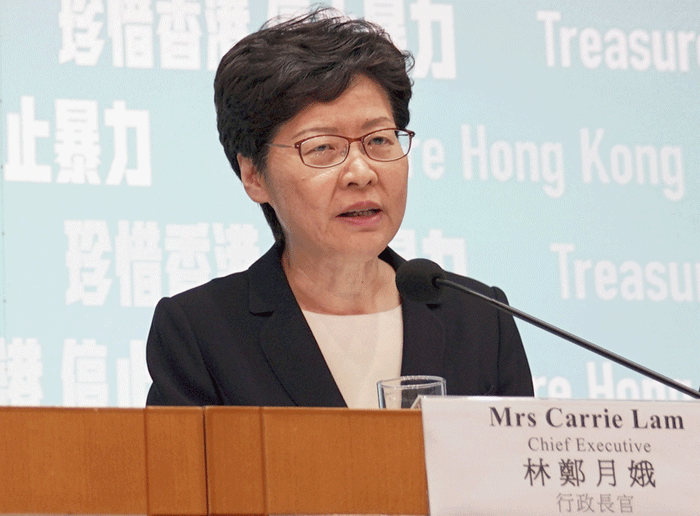As the Hong Kong government tries to quell increasingly violent protests, its embattled leader on Friday invoked emergency powers to ban face masks, deploying a rarely used law that could inflame tensions and tar the city’s reputation as a safe, open hub for finance and tourism.
The decision by the city’s chief executive, Carrie Lam, reflects the growing intensity of the monthslong movement and the pressure the government faces to take action.
Earlier this week, tens of thousands of protesters spread out across the city in mass demonstrations designed to overshadow a politically sensitive anniversary in China. The protests quickly turned into violent clashes, including the shooting of an 18-year-old student by a police officer.
But the decision by Lam could backfire by provoking further concern about government encroachment on the civil freedoms enjoyed in Hong Kong and Beijing’s influence over the city.
While the ban could keep more peaceful protesters off the streets, it could also incite a combative core of protesters and prompt more confrontations. Any uptick in violence could add to the strain on the local economy, as the protests have deterred overseas tourists, mainland shoppers and business travelers.
Lam emphasised repeatedly at a news conference that she was not declaring an emergency, but was acting under a provision in the territory’s colonial-era law that allows the issuance of regulations in response to “a state of serious danger”.
“We are particularly concerned that many students are participating” in violent protests, “jeopardising their safety and even their future”, she said. “As a responsible government, we have a duty to use all available means to stop the escalating violence and restore calmness in society.”
The ban on face masks, which will take effect at 12am on Saturday, will be punishable by up to one year in jail and a fine. It will apply to all public gatherings.
Face masks are a common feature of the protests, both for security and safety. Many protesters wear gas masks and respirators, as do first aid responders and journalists, to protect themselves from tear gas that the police deploy to disperse crowds that engage in violence.
Some wear them to protect their identity, fearful they will be captured in photos and by surveillance equipment, then targeted for retaliation.
Few people attend mass gatherings without one, even during peaceful marches and demonstrations. When Lam held her first town hall with residents last week, many members of the audience who confronted her with difficult questions wore masks.
Beyond the protests, face masks are regularly seen in Hong Kong, worn by people worried about spreading germs, especially since the 2003 SARS epidemic. Residents also use them on particularly polluted days.
As word of the ban spread on Friday during lunchtime, hundreds of people, many wearing face masks, blocked a major road in downtown Hong Kong. They chanted anti-government slogans, saying it was “unreasonable legislation” and “covering faces is not a crime.” Some called for Lam to change course and disband the police. “This ban is ridiculous,” said Wilson Lee, a 29-year-old paralegal.











